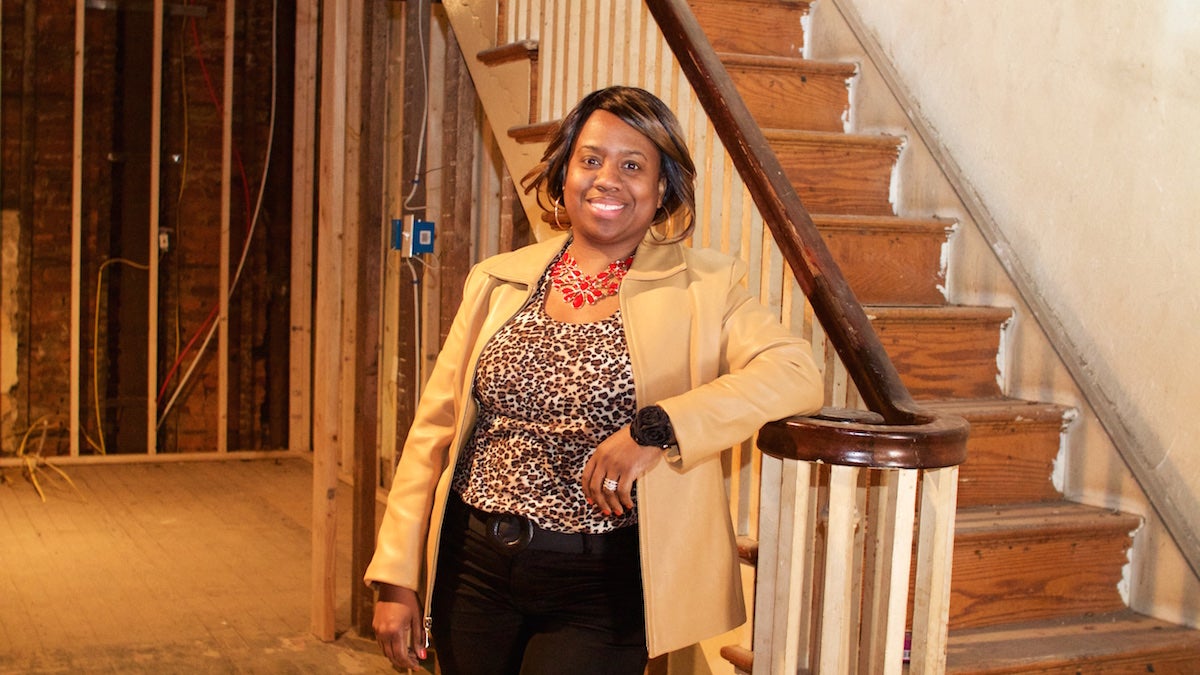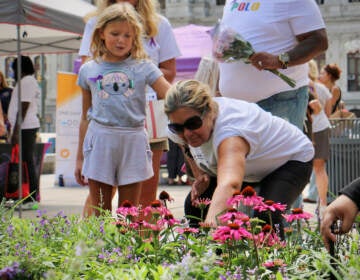Jumpstart Germantown catching on with would-be developers

Real estate developer and Jumpstart Germantown alum
Nearly a year has passed since Philly Office Retail launched Jumpstart Germantown, a mentorship-based property development initiative.
Seventy-five budding developers attended Jumpstart’s mentoring sessions in 2015 and 80 more are expected to enroll this year. Some of the first participants are already making headway in their path towards real estate investment.
More than three-quarters of those are either women or African-American, two groups who are typically under represented in the field.
“They’ve not had the same access to training, experience or funding. We’re trying to change all that.” said developer Ken Weinstein, president of Philly Office Retail.
The program is attracting the attention of other communities as well, receiving inquiries from the New Kensington Community Development Corporation and as far away as Pittsburgh.
Weinstein says Jumpstart was designed to be easily replicated and he’s considering branding it as a model for other neighborhoods.
“If it has the impact we think its going to have, then people are going to be seeking out this program,” he said.
Keeping it local
Tiffany Tull, Gabriella Somoza and Nick Covolus are among Jumpstart’s first alumni, coming from different backgrounds and real estate experience, but with a shared belief in the future of Germantown and a strong desire to be a part of making it happen.
While not a requirement, enrollees are being asked to make a commitment to the neighborhood.
Somoza, a New York native, has been jointly running a property development company with her brother for the past two years. They found real estate investment in New York too expensive, so she and her brother looked to Philadelphia.
Germantown attracted them, she said, because they see potential for the area to appreciate. The housing stock, too, is spacious compared to other neighborhoods. Many homes have solid bones and need only minor upkeep, she said.
They already had two properties in East Germantown and were looking to buy another prior to entering the program, which they heard about through a local referral.
Covolus, a life-long resident of Germantown and community activist, has no prior experience but wants to invest in the rise of his neighborhood. He said he hopes Jumpstart will drive even further investment to help clean up public spaces and create a diverse business community.
Tull, a licensed realtor from Plymouth Meeting who previously resided for 15 years in in Germantown, had hit a brick wall in growing the property development business she and her husband started a decade ago.
They had bought and rehabbed three other properties, but two had been formerly owned by family and the couple had to rely solely on their own funds after being denied bank loans.
Loans to those wouldn’t typically qualify
Weinstein says the development incubator’s loan program is its most exciting component because it provides funding to less experienced developers that just isn’t available through traditional financial institutions.
The short term (nine month with three month extensions) loans are restricted to properties in Germantown and adjacent neighborhoods, with loan-to-value ratios up to 85 percent, which is 10 to 25 percent more than conventional lenders.
For Tull, this has been a crucial benefit. “I needed someone to believe in me, invest in me. Jumpstart provides that,” she said.
Mentorship, network
Before getting a loan, however, participants have to complete Jumpstart’s mentorship program, where they receive nine hours of instruction on topics like cost estimating, acquisition, construction, forming relationships within the community, property management and financing through the loan process. Afterwards, the mentees are paired with one of 10 available mentors.
Tull said she found the class imperative to avoiding costly mistakes down the road.
Even so, unforeseen challenges can occur. After the mentorship program, Somoza and her brother bought and rehabbed a house on Rubicam Street. But just before inspection, problems arose with the electrician they had hired.
Somoza said she was able to quickly find another, mitigating a serious jam, through the network of contacts fostered by Jumpstart.
Investing in real estate is stressful and risky, but having a good network can ease growing pains, she said.
The developer network, another core part of the program, meets quarterly and has a dedicated Facebook page where folks can share resources and advice.
Expanding the pie instead fighting over a piece of the pie is the goal, Weinstein said.
“It’s a trust thing as well,” said Somoza, adding that it has been a great help to have direct links with others connected to the neighborhood and in the same business.
Though his property holdings in Germantown are significant (250,330 square feet of space), Weinstein insists he’s never been interested in gentrifying the neighborhood.
Jumpstart’s focus is on scatter site housing, rather than 1970s-style urban renewal, where entire blocks are knocked down and explosive growth occurs.
Going forward
Philly Office Retail has been keeping track of enrollees who’ve taken out loans, but will begin tracking all Jumpstart participants this spring in order to gauge the program’s success over the long term.
Weinstein said he plans on continuing the program for as long as there is demand.
Somoza, the first applicant in Jumpstart’s loan program, just closed out this month and is looking next to buy a multi-unit property. Tull, too, plans on developing multi-unit properties after finishing renovations on a single family home.
Covolus, on the other hand is still looking for his first property, hoping to soon buy in Southeast Germantown. Even if that takes some time or doesn’t work out, he firmly believes the program will have a positive effect on the area.
“The hardest part is taking that first step,” he said.
WHYY is your source for fact-based, in-depth journalism and information. As a nonprofit organization, we rely on financial support from readers like you. Please give today.




